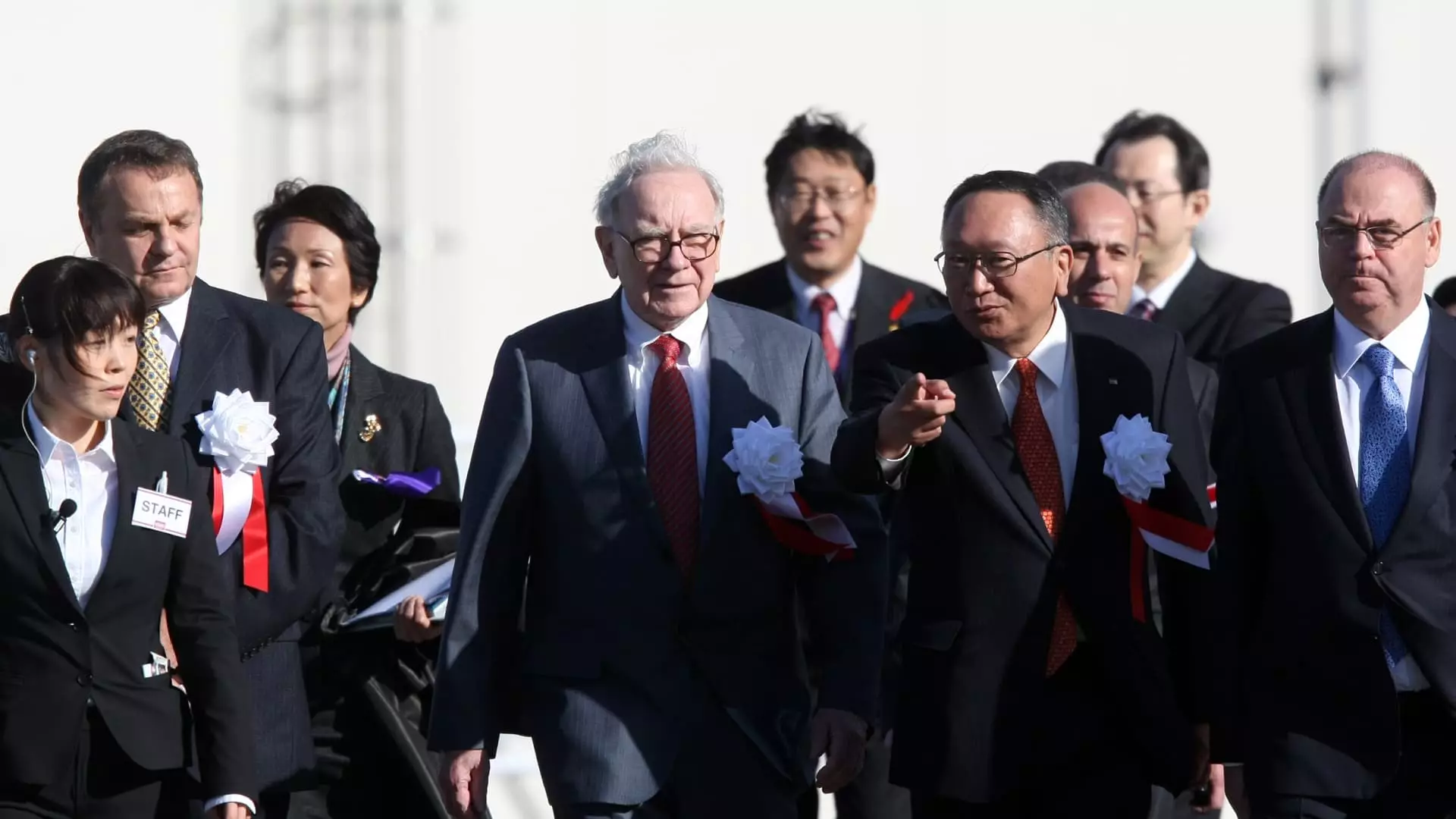In a significant revelation from Warren Buffett’s recent annual letter to shareholders, Berkshire Hathaway has reaffirmed its long-term commitment to its Japanese investments. Initially limiting their ownership to 10% in five major Japanese trading firms, Buffett announced an agreement that allows Berkshire to exceed this ceiling. This shift indicates a deeper strategic alignment with companies that are central to the dynamics of global trade. As Buffett noted, the ceiling relaxation was a cooperative gesture from the trading houses as Berkshire approaches its ownership limits, suggesting a mutually beneficial relationship paving the way for future growth.
The companies in which Berkshire holds shares — Itochu, Marubeni, Mitsubishi, Mitsui, and Sumitomo — represent the titan firms of Japan’s economy, often referred to as “sogo shosha.” Their diversified investment strategies parallel Berkshire’s approach, emphasizing a shared understanding of complex market dynamics. These conglomerates broadly penetrate both domestic and offshore markets, making them valuable partners for Berkshire Hathaway. Their robust management philosophies and strategic capital deployment have caught Buffett’s attention, further validating Berkshire’s investment choices since entering the market in 2019.
Berkshire Hathaway’s calculated entry and option strategies reflect a positive trend concerning its Japanese investments. Presently, the market value of these holdings stands at an impressive $23.5 billion, significantly exceeding the initial acquisition cost of $13.8 billion. This 2024 fiscal year showed a notable return on investment, growing due to favorable currency exchange rates. Buffett’s move to sell Japanese bonds to finance these investments serves as a clever tactic to hedge against currency fluctuations, reinforcing the resilience of Berkshire’s financial strategy in a volatile market.
The outlook for Berkshire Hathaway’s stake in these trading companies remains optimistic. Buffett projects the annual dividend income from these investments to reach around $812 million, a testament to their potential for consistent revenue generation. The mention of Greg Abel, Buffett’s designated successor, signals that this investment strategy is not merely a short-term profit play but part of a broader vision that spans decades. The commitment to nurture and deepen relationships with these trading houses reflects an understanding of their mutual fortunes and interdependencies within the global marketplace.
Despite the potential and strategic maneuvers, it is essential to recognize the challenges faced by the trading houses. Recent market performances indicate turbulence, with companies like Itochu and Marubeni experiencing a decline of over 8%, while Mitsubishi has faced a steep drop of 26%. These figures underscore the volatility inherent in the trading sector, highlighting the need for careful risk management and proactive strategies to protect and enhance Berkshire’s investments in the face of fluctuating market conditions.
Berkshire Hathaway’s engagement with Japanese trading companies illustrates a calculated approach to international investment. As Buffett and his successors navigate these strategic waters, their focus on long-term relationships and prudent financial management will be critical in addressing both opportunities and challenges in this dynamic market environment.

